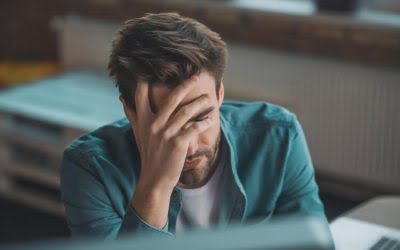For most patients, Talkiatry treatment is just as effective as in-person psychiatry (American Psychiatric Association, 2021), and much more convenient. That said, we don’t currently provide treatment for schizophrenia, primary eating disorder treatment, or Medication Assisted Treatment for substance use disorders. The more you drink, the more likely you are to induce chemical changes that can trigger panic attacks and other health problems. As a result, the best way to prevent panic attacks after drinking is to know your limits and avoid drinking to excess. To understand exactly why this happens, chemically, it’s important to understand the role of GABA—a neurotransmitter—in the brain and body.
How can you prevent panic attacks after drinking?
Alcohol withdrawal panic attacks can create many other issues for the individual attempting to get sober on their own. Supervised detox can ensure that the person’s mental and physical health are watched closely, for their safety and well-being. Talk to a healthcare provider if you are concerned about your drinking or that of a loved one.
- Another study with 171 male veterans demonstrated that self-reported measures of temporary anxiety (i.e., state anxiety) decreased rapidly during inpatient alcohol treatment (Brown et al. 1991).
- TCAs also should be used with caution among people with co-occurring AUDs and be prescribed only after other treatments have been ruled out because these medications can have an enhanced adverse-effect profile in this population.
- From a glass of wine with dinner to a night out with friends or a celebratory toast, alcohol consumption is deeply ingrained in many social practices and cultural traditions worldwide.
- The fact that all these physiological changes can cause symptoms so similar to those of a panic attack can trick your brain into having a real one.
- Over time, alcohol use takes a toll on your body and increases your risk of over 200 health conditions.
Risk Factors for Anxiety
This view aligns mostly with recent neurobiological theories of addiction, but it also shares similarities with early typologies, in which negative affect was considered a fundamental trait among a large subgroup of people who had problems with alcohol. In this opponent process model, the term “addiction” refers to the neurobiological and motivational changes that occur as a consequence of chronic substance use. However, restricting attention to a single diagnosis and its relationship to alcohol misuse does not align with more recent research.
Treatment for Alcohol Use and Anxiety Disorders
- Also, if this population has no increased risk for AUD, how is that consistent with the shared neurobiology thesis?
- For example, a direct examination of the efficacy of paroxetine in this population showed that it reduced social anxiety relative to placebo (Book et al. 2008), providing an empirical foundation for its use in these patients.
- Alcohol alters the levels of serotonin and other neurotransmitters in the brain.
- People who come to me to work on their alcohol consumption often feel perplexed by their own behaviors.
Research suggests that there is a link between alcohol consumption and anxiety. This is characterized as the impulsive stage of addiction because the goal of increasing pleasure, rather than avoiding or escaping discomfort, motivates https://thewashingtondigest.com/top-5-advantages-of-staying-in-a-sober-living-house/ seeking alcohol or other drugs. Increasingly, this research includes examination of the long-term genetic and environmental influences on stress reactivity and regulation and their connections to the development of AUD vulnerability.
The potential relevance of such factors was demonstrated in a 21-year longitudinal study of young people (Goodwin et al. 2004), in which early presence of anxiety disorders seemed to predict the later development of alcohol dependence. However, when the investigators controlled for other variables, such as prior other drug dependence and depression, the presence of anxiety disorders no longer was a significant predictor. The results of this study suggest that the link between anxiety and AUDs was not direct but instead may have been a consequence of those other variables studied.
- It is very common for people who experience anxiety to self-medicate by consuming alcohol, which can offer a temporary fix.
- These factors spotlight the importance of probing for anxiety disorders in women entering alcohol treatment and reinforce the need to remain sensitive to the different ways that gender can influence the process and outcomes of therapy.
- There are healthier ways to manage your panic attacks, which won’t leave you at risk of damaging your health and wellbeing in the long run.
- At Talkiatry, our psychiatrists can treat patients with mental health conditions such as anxiety or depression and substance use disorders that occur at the same time.
- Over time you will require more alcohol in order to achieve the initial feeling of calm, and your body will begin to process this substance more rapidly requiring more frequent consumption of alcohol in order to stave off the withdrawal and subsequent anxiety.
- However, if you find yourself frequently experiencing anxiety and regret after drinking, particularly after heavy drinking, it may be a sign of a more serious problem.
Wildfires: How to cope when smoke affects air quality and health
If you tend to use alcohol to manage uncomfortable emotional symptoms, such as anxiety or panic, then you might be tempted to do so during a panic attack. Healthcare professionals use special diagnostic assessments to determine if someone has an alcohol use disorder, and they often include asking Top 5 Advantages of Staying in a Sober Living House specific questions about how and when they drink alcoholic beverages. For instance, someone who has tried to stop drinking but couldn’t might have an AUD. If you regularly experience alcohol-related anxiety, it might help to talk with a mental health professional, such as a therapist.

